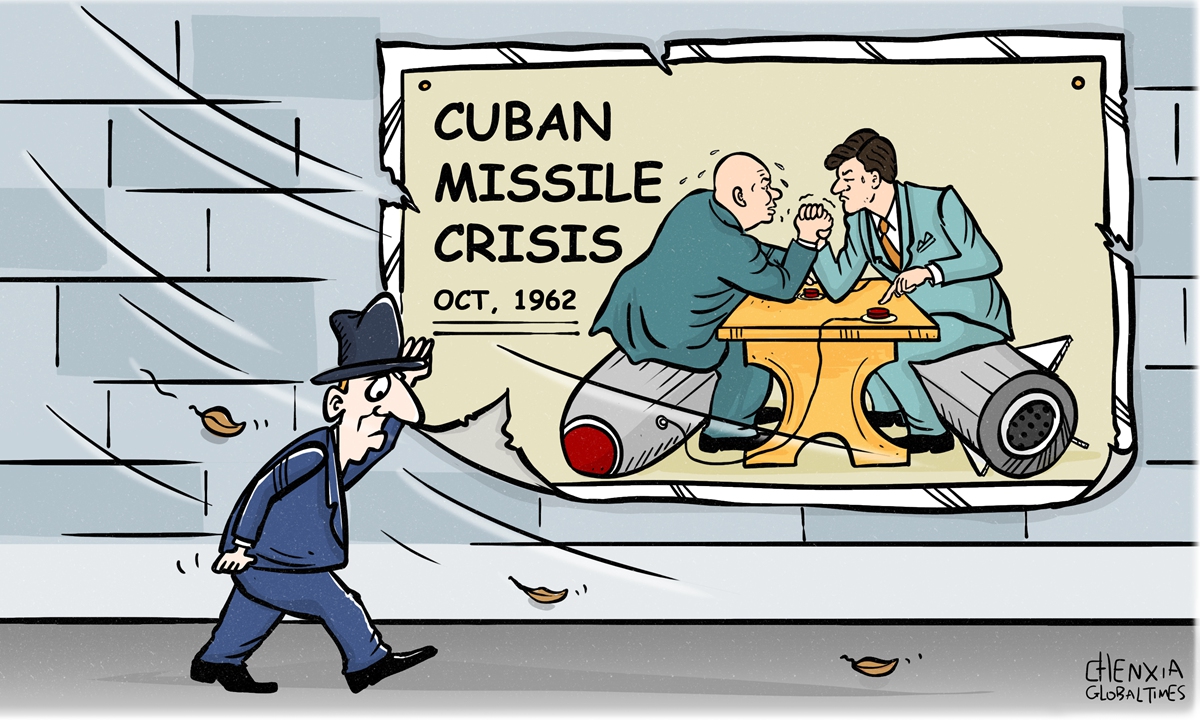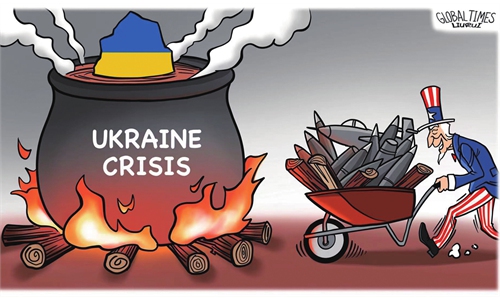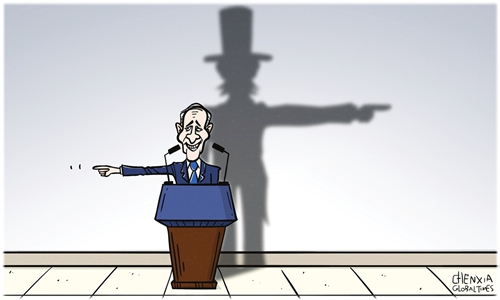
Illustration: Chen Xia/GT
This month marks the 60th anniversary of the Cuban Missile Crisis, which was the closest that the world ever came to a nuclear war. The US and the Soviet Union faced off over Cuba, where the latter had secretly deployed nuclear weapons in response to Washington earlier deploying the same in Turkey. Cooler heads ultimately prevailed, and both superpowers ended up withdrawing their weapons from each of these countries. Nevertheless, this crisis taught everyone some enduring lessons that are relevant today.The first is that security dilemmas are very dangerous. This concept refers to one country unilaterally making moves that it claims are defensive, but which are interpreted by another as offensive. The second country therefore reciprocates in its own way so as to defend its interests, which perpetuates a seemingly never-ending cycle that can reach dramatic proportions if left unchecked. In the case of the Cuban Missile Crisis, everything started with the US' secret deployment of nuclear weapons to Turkey.
The second lesson is that superpower politics can lead to comparatively smaller players being exploited as chess pieces in the global struggle between larger ones. Turkey was already a member of NATO at the time that the US secretly deployed nuclear weapons there. Thus, it would have been protected by that superpower in the event of aggression and therefore didn't need to host those arms. Even so, this geostrategic state was still exploited by its ally as a chess piece for gaining a military advantage over the USSR.
Third, the entire world is held hostage whenever superpowers compete with one another, be it directly, or by proxy. The stakes are unprecedentedly high considering the fact that they concern humankind's continued survival, yet only a miniscule fraction of the world's population - top decisionmakers in each superpower - have a say over what might happen. This makes superpower competition undemocratic to the core since everyone's future depends on literally just a handful of people.
Fourth, respectful dialogue with one another as true equals is the only way to de-escalate security dilemmas between superpowers, especially when they are on the brink of war like during the Cuban Missile Crisis. American and Soviet leaders remained in regular contact during those tense times. Had they not, then a nuclear war might have broken out by miscalculation, something that each of them were aware of and sought to avoid.
And finally, the last but most obvious lesson is that nuclear war is always absolutely unacceptable. At all costs, everything must be done to prevent it. Accordingly, every effort should be undertaken to preemptively avert security dilemmas, ensure that no comparatively smaller players are exploited as chess pieces, and that competition between nuclear powers remains friendly and under control. Dialogue must always be maintained too, since disrupting or ending it could prove catastrophic in the worst-case scenario.
All of these lessons are relevant to contemporary affairs, especially concerning the US' unprovoked aggression against Russia and China, which are both nuclear powers. Regarding the first, the continued expansion of US-led NATO, steady construction of "anti-missile" systems near that country's borders, and refusal to seriously consider its security guarantee requests from late last year prompted Moscow to resort to military means for ensuring the integrity of its national security red lines in Ukraine.
The latest phase of the Ukraine conflict can objectively be described as a proxy war seeing as how both nuclear powers are fighting one another in the former Soviet Republic. Russian President Vladimir Putin very strongly implied that he could resort to nuclear weapons to defend his country's territorial integrity in the absolute worst-case scenario, which has tremendously raised the stakes and influenced US President Joe Biden to warn that the world allegedly stands at the brink of Armageddon once again.
As for the US' unprovoked aggression against China, this involves its meddling in the Taiwan region and implied threats to disrupt Sea Lines of Communication in the South China Sea under the guise of falsely described "freedom of navigation" operations. All of these threaten to cross China's national security red lines in the region, though it remains unclear how Beijing would respond if that happens.
In any case, the pattern is apparent for all objective observers to see: the US has recklessly provoked security dilemmas with Russia and China. Each of these involves unilateral military moves by the US that it claims to be defensive, but which are regarded by those two as offensive. The US is also exploiting comparatively smaller players to endanger Russia's and China's national security. This could lead to uncontrollable dynamics that put everyone's lives on the line.
The only way to avert everything worsening is for the US to enter into respectful dialogue with Russia and China as true equals, something that it loathes to do. That's because unlike during the Cuban Missile Crisis, American decision-makers are intoxicated with discredited supremacist notions of so-called exceptionalism stemming from their victory over the Soviet Union in the Cold War. They regard their country as the global hegemon and wrongly believe it to be below themselves to treat others as equals.
It can't be emphasized enough just how dangerous this makes the evolving dynamics in each half of Eurasia, brought about by the US' unprovoked aggression against Russia and China. Leadership isn't bullying, unlike what the incumbent American administration seems to think, but requires pragmatic compromises in pursuit of the greater global good. The first step toward that path is entering into respectful dialogue with Russia and China as true equals, which the world hopes the US will soon do.
The author is a Moscow-based American political analyst. opinion@globaltimes.com.cn


